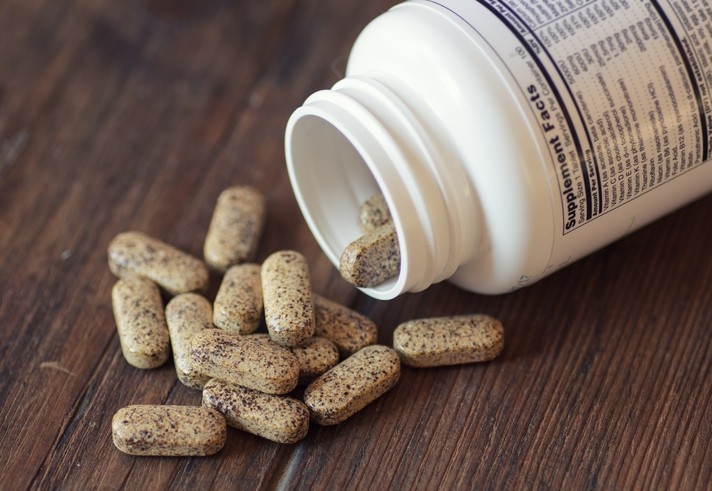Emma Supplement Reviews: Insights into Gut Health and Beyond
Emma Supplement Reviews: Insights into Gut Health and Beyond
Blog Article
Exploring the Reasons That Digestive Supplements Are Vital for Keeping a Healthy Intestine Microbiome
As we explore the detailed ecological community of the intestine microbiome, one can not ignore the crucial role it plays in our overall health and wellness and well-being. The delicate equilibrium of valuable germs within our gastrointestinal system influences not just our food digestion but also our immune function and mental wellness. Nevertheless, keeping this balance can be challenging in the face of contemporary way of lives and nutritional routines. The expedition of the reasons why digestive supplements are considered crucial for supporting a healthy gut microbiome unveils a remarkable interplay between scientific research, nutrition, and the complex operations of our bodies.
Digestive Tract Microbiome Inequality Triggers

Diet regimen plays a substantial function in forming the make-up of the intestine microbiome. A diet regimen high in refined foods, sugar, and harmful fats can promote the development of dangerous bacteria while decreasing useful pressures. On the other hand, a diet plan abundant in fiber, fruits, vegetables, and fermented foods can support a healthy and diverse intestine microbiome.
Stress and anxiety is an additional variable that can add to intestine microbiome inequality. Chronic tension can disrupt the interaction between the intestine and the brain, leading to changes in digestive tract permeability, secretion, and mobility. These modifications can have an unfavorable impact on the make-up of the gut microbiome, possibly leading to inflammation and digestion issues.
Finally, using antibiotics can likewise disrupt the fragile balance of the intestine microbiome. While antibiotics are crucial for dealing with microbial infections, they can additionally indiscriminately eliminate both dangerous and helpful microorganisms in the intestine. This disruption can lead the way for opportunistic microorganisms to thrive, better aggravating digestive tract dysbiosis.

Influence of Anxiety on Digestive Tract Wellness
Anxiety, as a substantial factor to gut microbiome imbalance, can greatly influence gut health by interfering with the complex communication pathways in between the mind and the gastrointestinal system. When an individual experiences anxiety, whether due to exterior stress factors or psychological aspects, such as job pressure or individual life difficulties, the body starts a series of responses that can affect the digestive tract. The gut-brain axis, a complex bidirectional communication system between the main anxious system and the enteric nervous system of the digestive tract, plays a vital duty in regulating numerous gastrointestinal features, including secretion, leaks in the structure, and mobility.
Persistent stress can result in dysregulation of the gut-brain axis, causing modifications in gut motility, blood flow, and immune function. This disruption can result in an imbalance of gut germs, swelling, and modifications in intestinal tract permeability. As a result, people under consistent tension might experience digestive system problems like bloating, abdominal discomfort, and uneven defecation. Therefore, handling anxiety degrees with leisure techniques, mindfulness methods, and ample rest is crucial for keeping a healthy digestive tract microbiome and total digestive health.
Benefits of Gastrointestinal Supplements
Just how do digestive system supplements contribute to boosting digestive tract health and advertising a balanced microbiome? These supplements typically contain probiotics, prebiotics, enzymes, and other useful ingredients that aid preserve a healthy and balanced digestive tract microbiome.
Furthermore, digestive supplements can aid in improving digestion function and lowering stomach problems such as gas, bloating, and acid indigestion. By supporting the malfunction and absorption of nutrients, these supplements can improve vitamins and mineral schedule to the body, bring about much better total health and health. Moreover, some digestive supplements also have anti-inflammatory buildings that can help in reducing gut inflammation and support immune feature.
Role of Diet Plan in Digestive Tract Wellness
Diet regimen plays an essential role in affecting the wellness and balance of the gut microbiome. The foods we eat function directory as the key source of nutrients for the trillions of germs living in our digestion system. A diet plan rich in varied fruits, veggies, whole grains, lean proteins, and healthy fats gives important nutrients that sustain a prospering digestive tract microbiota.
Fiber, for example, acts as a prebiotic, fueling the growth of advantageous germs and advertising overall intestine wellness. Probiotic-rich foods such as yogurt, kefir, sauerkraut, and kimchi introduce live advantageous microorganisms into the gut, additionally improving microbial variety. On the other hand, diets high in processed foods, sugars, and undesirable fats can negatively influence the gut microbiome, resulting in an inequality that might add to numerous digestive problems and overall health and wellness troubles.

Relevance of Probiotics and Prebiotics
In the realm of fostering a flourishing digestive tract microbiome, an important factor to consider lies in identifying the crucial functions that prebiotics and probiotics play in sustaining gastrointestinal health and total wellness. Probiotics are real-time valuable bacteria that assist maintain the balance of gut plants, aiding in digestion and absorption of nutrients, and sustaining the immune system. By integrating both probiotics and prebiotics into our diet plans, we can advertise a healthy and balanced digestive tract microbiome, improve food digestion, lower inflammation, and enhance total wellness.
Final Thought
To conclude, maintaining a healthy intestine microbiome is important for overall well-being - Emma Gut Health. Digestive supplements play a vital duty in bring back equilibrium to the intestine microbiome, specifically in situations of discrepancy brought on by tension or bad diet regimen. Integrating probiotics and prebiotics into one's daily routine can further sustain gut health and promote correct food digestion. By resolving these factors, individuals can enhance their overall wellness and quality of life.
The digestive tract microbiome, a complex area of microorganisms living in the digestive tract, plays a crucial duty in maintaining total health and wellness. Persistent tension can interfere with the communication in between the mind and the digestive tract, leading to changes in gut secretion, mobility, and leaks in the structure.Stress, as a substantial factor to digestive tract microbiome inequality, can exceptionally influence gut health website link by disrupting the complex interaction pathways in between the mind and the gastrointestinal system.How do digestive supplements add to enhancing digestive tract health and wellness important site and promoting a well balanced microbiome? On the contrary, diets high in refined foods, sugars, and undesirable fats can negatively affect the digestive tract microbiome, leading to an imbalance that might add to various gastrointestinal problems and overall wellness problems.
Report this page